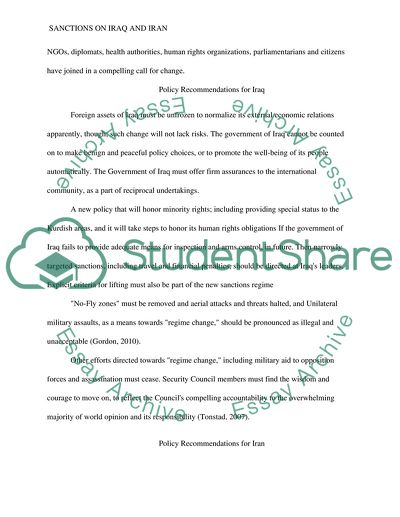Cite this document
(“Sanctions on Iraq and Iran: Policy Recommendations Research Paper”, n.d.)
Sanctions on Iraq and Iran: Policy Recommendations Research Paper. Retrieved from https://studentshare.org/social-science/1701768-sanctions-on-iraq-and-iran-policy-recommendations
Sanctions on Iraq and Iran: Policy Recommendations Research Paper. Retrieved from https://studentshare.org/social-science/1701768-sanctions-on-iraq-and-iran-policy-recommendations
(Sanctions on Iraq and Iran: Policy Recommendations Research Paper)
Sanctions on Iraq and Iran: Policy Recommendations Research Paper. https://studentshare.org/social-science/1701768-sanctions-on-iraq-and-iran-policy-recommendations.
Sanctions on Iraq and Iran: Policy Recommendations Research Paper. https://studentshare.org/social-science/1701768-sanctions-on-iraq-and-iran-policy-recommendations.
“Sanctions on Iraq and Iran: Policy Recommendations Research Paper”, n.d. https://studentshare.org/social-science/1701768-sanctions-on-iraq-and-iran-policy-recommendations.


